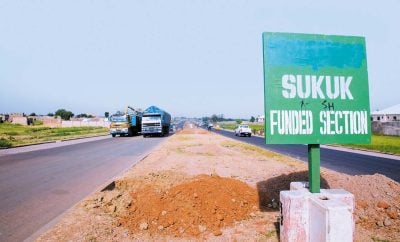
Dr George Agyekum Donkor is a man at the helm of transformation. Since his appointment in January 2020 as President and Chairman of the Board of Directors of the ECOWAS Bank for Investment and Development (EBID), he has brought a potent mix of legal expertise, developmental vision, and strategic execution to one of West Africa’s most critical financial institutions. He recently sat down with African Banker to unpack the evolving mandate of EBID, the institution’s 2021-2025 Strategic Plan, and why development, not profit, remains the Bank’s North Star.
Given the number of Development Finance Institutions (DFIs) in Africa, could you contextualise EBID for our readers?
Certainly. The ECOWAS Bank for Investment and Development is the Development Finance Institution of the Economic Community of West African States (ECOWAS), which consists of 15 Member States.
Initially created as the ECOWAS Fund in 1975, the institution was restructured in 1999 into the EBID Group and subsequently consolidated in 2006 into a unified entity with two windows – one dedicated to public sector financing, the other to private sector development.
Operating from its headquarters in Lomé, Togo, EBID’s central mandate is to catalyse integration, sustainable development, and resilience across the sub-region through targeted financing in both public and private spheres.
What are the Bank’s core functions in this broader regional development context?
EBID’s core mandate is to enable inclusive, sustainable, and resilient economic growth through strategic investments. The Bank finances infrastructure that supports regional integration, backs both public and private sector development, and funds special programmes that align with the ECOWAS agenda.
This includes granting loans, issuing guarantees, and offering technical assistance for development projects. The Bank also mobilises financing from within and outside the subregion and works in collaboration with international development institutions. EBID’s vision is to emerge as West Africa’s premier regional development and investment bank – driving industrialisation, job creation, and economic well-being.
In terms of financial strength, how does EBID compare with its global peers?
With a total balance sheet of $1.97bn at the end of 2024, EBID is relatively modest compared to global DFIs. However, what distinguishes us is the effective deployment of our resources to priority sectors tailored to meet the unique needs of the subregion.
In 2024, the Bank disbursed $473.8m – 24% of its balance sheet – a significant increase from 16.5% the previous year. This performance came alongside a $77.21m capital injection from shareholders and a successful mobilisation of $306.4m, mostly from non-African funding sources.
EBID has registered no new non-performing loans in five years – except one case due to challenges in that economy –bringing the Bank’s NPL ratio down from 15.36% in 2018 to 4.11% in 2024.
The Bank’s loan book grew by 13.3% year-on-year, and its operating income rose by 20.1%, culminating in a net profit of $8.55m. This has been recognised by rating agencies Fitch and Moody’s, who have endorsed this with favourable ratings comparatively.
As EBID nears the conclusion of its 2021-2025 Strategy, how do you assess progress?
We are tracking ahead of expectations. By mid-2023, two-thirds of the strategy’s objectives had been achieved. Loan approvals reached 82.35% of target, and the Bank’s balance sheet surpassed both 2023 and 2025 targets.
With cumulative project approvals at over UA 1bn, capital mobilisation stood at 132.32% of the mid-term benchmark. Total financing needs are estimated at UA 1.03bn, and the Bank had already mobilised 66.21% of this. Moreover, EBID’s authorised capital has been increased from UA 1bn to UA 2.5bn while 45 projects had been financed totalling UA 1.03bn – 195.91% of the target.
The Bank’s strategy is not only aligned with 12 of the 17 UN SDGs but also making the institution more relevant to its stakeholders.
Let’s speak about recent approvals. What can you share about the 91st Board of Directors meeting?
In April 2025, the Board approved $230m and XOF10bn for strategic regional initiatives. These include:
A $50m credit line to Sterling Bank Nigeria to support SMEs across sectors including health, education, and renewable energy.
A XOF10bn facility to Benin Cashew SA to co-finance cashew nut processing in line with Benin’s agricultural transformation agenda.
A $180m facility to Mota-Engil Nigeria for the Kano-Maradi rail line, a vital link between Nigeria and Niger, expected to generate over 100,000 jobs during construction and 20,000 permanent positions thereafter.
These are aligned with SDG 9 (Industry and Infrastructure) and SDG 13 (Climate Action), and they elevate the Bank’s total regional commitments to $4.5bn.
What has been EBID’s broader sectoral impact to date?
As of 2024, EBID had disbursed $2.3bn directly to SMEs, women entrepreneurs, and major industrial projects. This includes:
- $1.06bn in support of regional infrastructure
- $114m injected into rural development and agricultural resilience
- $109m invested in industrial innovation and local manufacturing
- $172m in support of education and healthcare
- $864m directed to SME finance, with a focus on women and youth inclusion.
These interventions have created over 1m jobs – transforming lives across the ECOWAS subregion.
Could you illustrate the socioeconomic ripple effects of a specific project?
Take our 2024 investment in Côte d’Ivoire’s Bélier region: the Bank financed a vegetable packaging and storage facility expected to generate 120 direct and 420 indirect jobs, positively impacting 1,000 households.
This initiative integrates post-harvest processing and addresses youth unemployment and gender disparity – especially significant in a region where women comprise 49.6% of the population.
In Côte d’Ivoire, the youth represents 46% of the population but faces high underemployment. By providing technical training and rural infrastructure, the project encourages agricultural entrepreneurship and revitalises local economies.
Innovation seems central to EBID’s approach. How are you embedding it institutionally?
Innovation is non-negotiable. In July 2024, the Bank became the first DFI to issue a Green, Social, and Sustainable (GSS) Bond on the WAEMU financial market, raising $119m. The Bank is investing in solar energy – like the $22.5m Planet Solar 50MW project in Sierra Leone – and has committed $175m to trade finance, including $50m in 2024 alone.
The Bank is poised to become ECOWAS Community Guarantor to streamline intra-regional trade, reduce transport costs, and enhance competitiveness in partnership with all key stakeholders. In doing so, the Bank is pioneering a financing model that is inclusive, sustainable, and forward-looking.
How is EBID advancing institutional capacity on the ground?
Capacity building is embedded in every project. The Bank is part of the initiative towards establishing a University of Science and Technology in Sierra Leone.
The Bank has also built 150 boreholes in Guinea and financed solar-powered water pumps in Côte d’Ivoire. Public sector projects include training for local coordination units and maintenance teams, ensuring long-term sustainability.
What does the inclusion of non-regional members in EBID’s capital structure mean for the Bank?
Opening up to non-regional members is a transformative move that strengthens the Bank’s capital base, brings global best practices, and improves the Bank’s credit profile with rating agencies, ultimately leading to an improved rating.
This strategy also enhances governance, diversifies the Bank’s funding pool, and elevates EBID’s status in global financial markets. The ECOWAS Investment Forum (EIF) in 2024, which brought together key partners under the theme of unlocking regional potential, epitomised the Bank’s readiness for global engagement.
Looking ahead, what are the Bank’s top priorities?
As President and Chairman of EBID, my top priorities are anchored in our GRO strategy – Growth, Resilience, and Optimisation – to drive West Africa’s sustainable development. We will fuel growth by financing transformative projects in energy, agriculture, and infrastructure. In terms of resilience, we will strengthen internal risk frameworks and external shock preparedness.
Last but not least, regarding optimisation, we will leverage technology and partnerships to maximise impact, ensuring every investment delivers measurable progress. Together, these pillars position EBID as the catalyst for a more prosperous, integrated, and climate-smart West Africa.
EBID is not merely a financier; it is a force for transformation across West Africa. Every investment the Bank makes is a deliberate step toward building resilience, unlocking opportunity, and shaping a future rooted in shared prosperity.
By aligning capital with the subregion’s most urgent priorities, from infrastructure and energy to SMEs and social services, the Bank serves as a catalyst for sustainable growth and inclusive development.
The Bank’s commitment to Transforming ECOWAS Communities is not just a slogan; it is a mission in action. As we look ahead, EBID stands firm as a beacon of purpose-driven leadership, impact, and long-term progress.
Want to continue reading? Subscribe today.
You've read all your free articles for this month! Subscribe now to enjoy full access to our content.
Digital Monthly
£8.00 / month
Receive full unlimited access to our articles, opinions, podcasts and more.
Digital Yearly
£70.00 / year
Our best value offer - save £26 and gain access to all of our digital content for an entire year!
 Sign in with Google
Sign in with Google 



